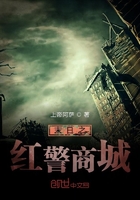The poor old grandfather, sick with asthma and lying on the brick oven all the time, tried from the first to dissuade them from quarrelling, and begged of them to live in peace; but they would not listen to his good advice. He said to them: "You children are ****** a great fuss and much trouble about nothing. I beg of you to stop and think of what a little thing has caused all this trouble. It has arisen from only one egg. If our neighbors' children picked it up, it is all right. God bless them! One egg is of but little value, and without it God will supply sufficient for all our needs."Ivan's daughter-in-law here interposed and said, "But they called us vile names."The old grandfather again spoke, saying: "Well, even if they did call you bad names, it would have been better to return good for evil, and by your example show them how to speak better. Such conduct on your part would have been best for all concerned." He continued: "Well, you had a fight, you wicked people. Such things sometimes happen, but it would be better if you went afterward and asked forgiveness and buried your grievances out of sight. Scatter them to the four winds of heaven, for if you do not do so it will be the worse for you in the end."The younger members of the family, still obstinate, refused to profit by the old man's advice, and declared he was not right, and that he only liked to grumble in his old-fashioned way.
Ivan refused to go to his neighbor, as the grandfather wished, saying: "I did not tear out Gavryl's beard. He did it himself, and his son tore my shirt and trousers into shreds."Ivan entered suit against Gavryl. He first went to the village justice, and not getting satisfaction from him he carried his case to the village court.
While the neighbors were wrangling over the affair, each suing the other, it happened that a perch-bolt from Gavryl's wagon was lost; and the women of Gavryl's household accused Ivan's son of stealing it.
They said: "We saw him in the night-time pass by our window, on his way to where the wagon was standing." "And my kumushka [sponsor]," said one of them, "told me that Ivan's son had offered it for sale at the kabak [tavern]."This accusation caused them again to go into court for a settlement of their grievances.
While the heads of the families were trying to have their troubles settled in court, their home quarrels were constant, and frequently resulted in hand-to-hand encounters. Even the little children followed the example of their elders and quarrelled incessantly.
The women, when they met on the riverbank to do the family washing, instead of attending to their work passed the time in abusing each other, and not infrequently they came to blows.
At first the male members of the families were content with accusing each other of various crimes, such as stealing and like meannesses. But the trouble in this mild form did not last long.
They soon resorted to other measures. They began to appropriate one another's things without asking permission, while various articles disappeared from both houses and could not be found.
This was done out of revenge.
This example being set by the men, the women and children also followed, and life soon became a burden to all who took part in the strife.
Ivan Scherbakoff and "Gavryl the Lame" at last laid their trouble before the mir (village meeting), in addition to having been in court and calling on the justice of the peace. Both of the latter had grown tired of them and their incessant wrangling.
One time Gavryl would succeed in having Ivan fined, and if he was not able to pay it he would be locked up in the cold dreary prison for days. Then it would be Ivan's turn to get Gavryl punished in like manner, and the greater the injury the one could do the other the more delight he took in it.
The success of either in having the other punished only served to increase their rage against each other, until they were like mad dogs in their warfare.
If anything went wrong with one of them he immediately accused his adversary of conspiring to ruin him, and sought revenge without stopping to inquire into the rights of the case.
When the peasants went into court, and had each other fined and imprisoned, it did not soften their hearts in the least. They would only taunt one another on such occasions, saying: "Never mind; I will repay you for all this."This state of affairs lasted for six years.
Ivan's father, the sick old man, constantly repeated his good advice. He would try to arouse their conscience by saying: "What are you doing, my children? Can you not throw off all these troubles, pay more attention to your business, and suppress your anger against your neighbors? There is no use in your continuing to live in this way, for the more enraged you become against each other the worse it is for you."Again was the wise advice of the old man rejected.
At the beginning of the seventh year of the existence of the feud it happened that a daughter-in-law of Ivan's was present at a marriage. At the wedding feast she openly accused Gavryl of stealing a horse. Gavryl was intoxicated at the time and was in no mood to stand the insult, so in retaliation he struck the woman a terrific blow, which confined her to her bed for more than a week. The woman being in delicate health, the worst results were feared.
Ivan, glad of a fresh opportunity to harass his neighbor, lodged a formal complaint before the district-attorney, hoping to rid himself forever of Gavryl by having him sent to Siberia.
On examining the complaint the district-attorney would not consider it, as by that time the injured woman was walking about and as well as ever.















